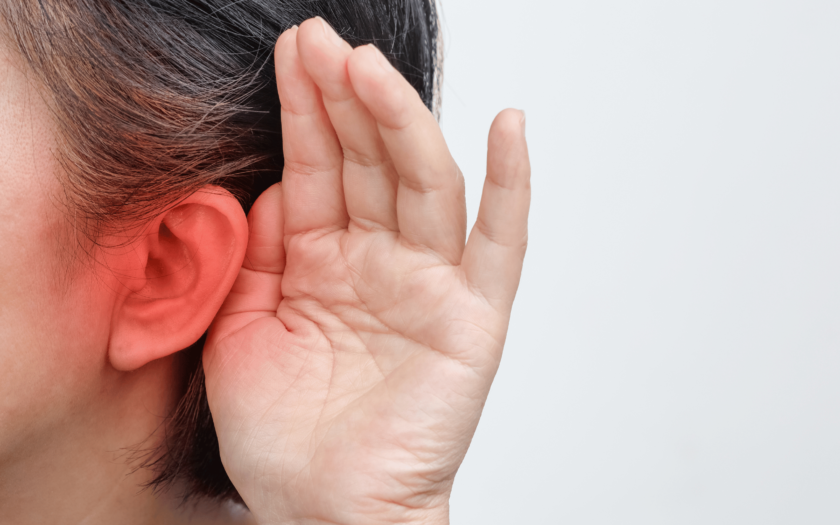Hearing loss is a condition where an individual experiences a reduced ability to hear sounds, which can range from mild to profound. It can be caused by factors such as aging, genetic conditions, infections, noise exposure, or injury to the ear. Depending on the type and severity of hearing loss, it can affect speech comprehension, communication, and social interactions. Early detection and treatment, such as hearing aids or cochlear implants, can significantly improve quality of life and help individuals adapt to hearing challenges.
What Is Hearing Loss?
Hearing loss, or hearing impairment, occurs when a child has difficulty hearing or understanding some or all sounds. It can result from problems in:
- The ears (outer, middle, or inner ear)
- The nerves that carry sound signals to the brain
- The part of the brain that interprets sound signals
Types of Hearing Loss
- Conductive hearing loss: Caused by a blockage that prevents sound from reaching the inner ear, such as ear infections, earwax buildup, or issues with the middle ear bones.
- Sensorineural hearing loss (SNHL): Results from damage to the inner ear (cochlea) or hearing nerves. This may be genetic or caused by infections, certain medicines, or other factors.
- Mixed hearing loss: A combination of both conductive and sensorineural hearing loss.
- Central hearing loss: Occurs due to damage to the brain areas responsible for hearing.
- Auditory processing disorder (APD): The ears work normally, but the brain has trouble processing the sounds it hears, particularly speech.
Causes of Hearing Loss
Hearing loss can occur for various reasons, and sometimes no specific cause is found. Risk factors include:
- Birth defects or family history of hearing loss
- Premature birth or a stay in the NICU
- Severe jaundice requiring a blood transfusion
- Ear infections, perforated eardrums, or exposure to loud sounds
- Infections like meningitis or cytomegalovirus
- Certain medications that can damage hearing
Signs & Symptoms of Hearing Loss
Hearing loss can be hard to detect, especially in young children. Key milestones in the first year of life include:
- Newborns: Startling at sudden loud noises.
- By 3 months: Recognizing their parent’s voice.
- By 6 months: Turning toward new sounds and making vowel sounds like “ooh” and “aah.”
- By 12 months: Babbling, responding to their name, and saying simple words like “mama.”
In older children, signs may include:
- Limited or unclear speech
- Not paying attention or following directions
- Not responding appropriately to conversation
- Frustration in noisy environments
- Needing higher TV volumes
- Learning difficulties
Diagnosing Hearing Loss
Early diagnosis is crucial, as treatment is more effective before a child reaches 6 months of age. Newborns are screened for hearing loss before leaving the hospital. If a baby doesn’t pass the screening, follow-up tests should be done within a month.
Children with normal hearing should continue having their hearing tested during regular checkups, typically at ages 4, 5, 6, 8, and 10, and during preteen and teen years.
Treating Hearing Loss
Treatment depends on the type and severity of the hearing loss. A team of specialists, including an audiologist, ENT doctor, and speech-language therapist, may be involved.
Common treatments include:
- Hearing aids: These devices amplify sound and are most effective when used early. Babies fitted with hearing aids before 6 months of age show better language development.
- Frequency modulation (FM) systems: Used in noisy environments like classrooms, FM systems help by amplifying the speaker’s voice (e.g., a teacher) directly to the child.
- Cochlear implants: Surgically placed devices for children with severe hearing loss when hearing aids aren’t enough. They stimulate the hearing nerve directly, bypassing damaged parts of the ear.
- Hearing habilitation: Children with hearing loss receive specialized training and therapy to help them develop communication skills. This can include auditory-verbal therapy, speech therapy, speech reading, and American Sign Language (ASL).
What Else Should I Know?
Even mild hearing loss can impact a child’s speech, language, and social development. Early intervention programs offer free therapy services to young children with hearing impairment to prevent developmental delays. Older children may qualify for special education services at school.
Getting help early is key to supporting a child’s growth and ensuring their hearing loss does not interfere with learning and social interactions.



